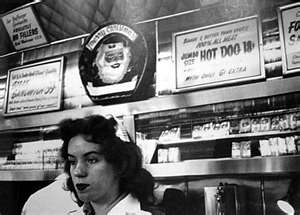1. Identify the specific argument that Paine is making in each paragraph. For each of the arguments, identify whether Paine is making an emotional, ethical, or logical appeal and suggest an effective counterargument.
#1He is making an emotional appeal. Logical fallacies: sentimental appeal, begging the question, faulty analogy. Comparing America to slavery. How do you know we are going to win would be begging the question. Argument: “Tyranny, like hell, is not easily conquered; yet we have this consolation with us, that the harder the conflict, the more glorious the triumph.” Things you get cheaply are not valuable. People are not willing to pay this price. Counter Argument: You can’t assume they will win
#2: That God Almighty will not give up a people to military destruction or leave them unsupportedly to perish. He is making a logical appeal. The counterargument is that God Almighty will give up a people to military destruction and leave them unsupportedly to perish. Logical Fallacies: Begging the question, dogmatic.
#3:
Argument: If we do not fight now, our children will not have peace in the future. Good parents would fight for their children futures.
He is using logical appeals because there will be some separation eventually so why not have it now. Ethical appeal due to parenting.
Counter argument: shouldn’t fight because maybe things will work out in the future.
Logical fallacy: false dichotomy because only giving to extremes.
Begging the question: assumes once war is fought everything will be great but it might actually be worse.
#4
Argument: American needs to defend ourselves. Compares king to a their and they are fighting a defensive war.
Logical fallacy: argument by analogy by comparing the king to a thief so that means we are forced to fight.
Emotional appeal because there is anger involved. Ethical appeal because they stand up to the king for their rights.
Logical fallacy: faulty analogy because the king and the thief are not similar and it author doesn’t support this argument will facts and statists.
Counter argument: Britain is more powerful.
2. Can you identify any of the logical fallacies that we discussed in Paine’s arguments? If so, which ones? Overall, what do you feel are the strengths and weaknesses of Paine’s arguments?
Logical fallacies discussed in Paine’s argument would include: faulty analogy, false dichotomy, argument by analogy, begging the questions, and sentimental appeal. Overall, I feel that Paine had a good argument, but he did not back it up with enough facts or information. If he would have done so, his argument would have been stronger.


